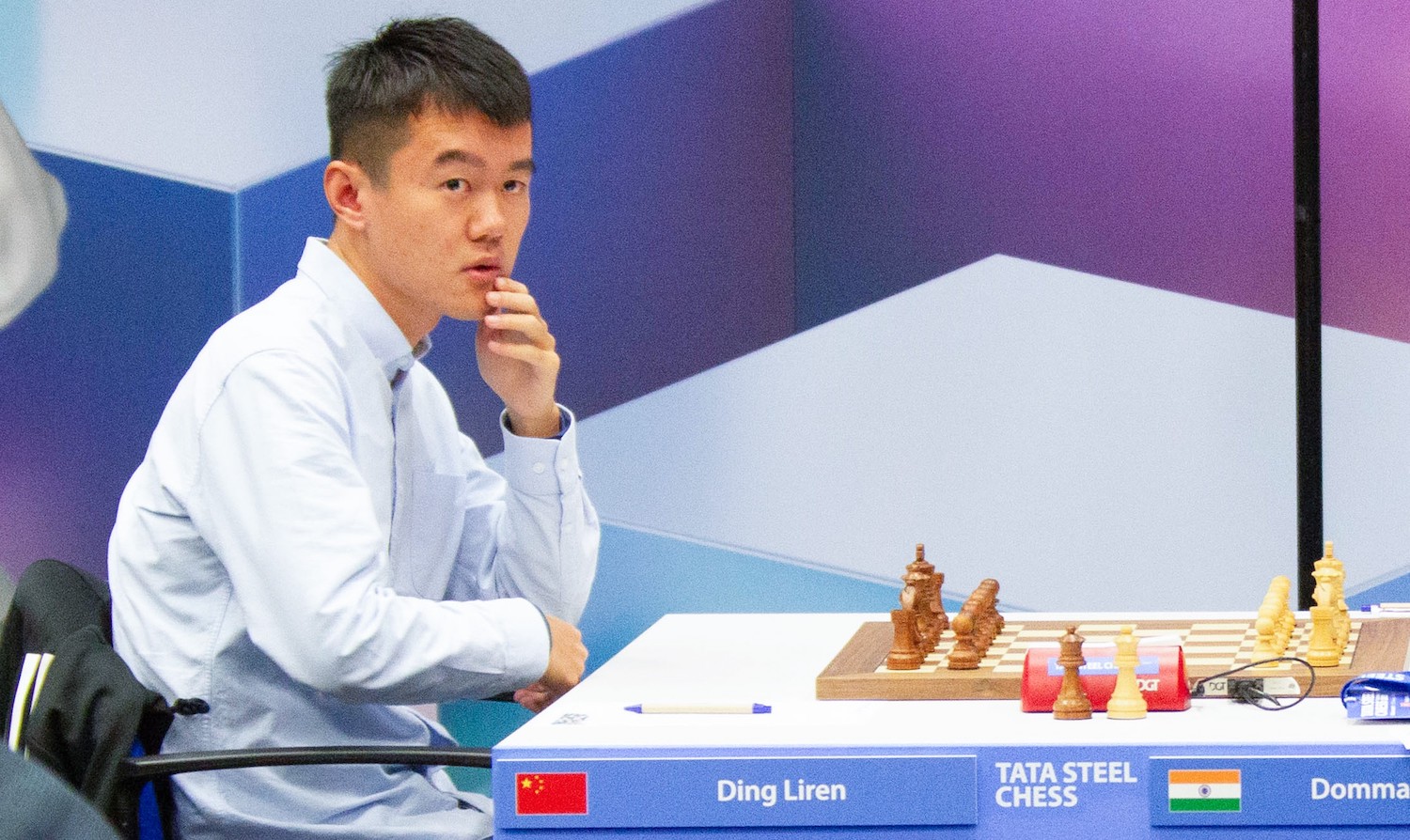Through nine extremely entertaining games, Ian Nepomniachtchi leads Ding Liren 5-4 at the 2023 Chess World Championship. As Ben Tippett wrote about earlier this week, it's rare for classical chess games played at this level not to end in draws, and the five decisive games are already the most at a world championship since Viswanathan Anand's 2010 title defense against Veselin Topalov. Even the draws in Nepomniachtchi-Ding have been fun, especially this morning's Game 9, an 82-move barnburner. Ding was really up against it today, in the sense that he had the black pieces, and also that he and his team might have accidentally revealed to the Nepomniachtchi camp that he might try to play the Berlin Defense.
Ding seems to have inadvertently tipped the chess world off to his sloppy operational security during Game 8, when he had the white pieces. Ding played an obscure but not unforseen variant of the Nimzo-Indian opening, before opening an even more novel line with the ninth move of the game: 9.Ra2!. Down a point, Ding knew he needed a win in one of his four games with White, and when he made the rook move, he signaled that this idea was one of the sharp, surprising moves that he had spent the pre-tournament months cooking up. "This idea I considered some kind of cannonball in my opening preparation, because it can be very powerful," he said after the game. "It's very, very long preparation, a very deep idea behind this." The novelty of this line, though smart in theory, would be his ultimate undoing.
Ding Liren uncorks 9.Ra2!?, which gave Aram Hakobyan two wins! https://t.co/Ak6LA2f2OA#NepoDing #c24live pic.twitter.com/gWxBpKj7NP
— chess24.com (@chess24com) April 20, 2023
A Reddit chess detective checked the rare position in lichess and discovered that two players, FVitelli and opqrstuv, had played the line against each other. They poked around a little further, quickly noticing a bunch of suspicious quirks that led to the inescapable conclusion that the two accounts belong to Ding and his second, Richard Rapport. Both accounts were created in February 2023; they only played rapid games against each other; opqrstuv had blitz and bullet ratings above 2700; the two had also played through the opening of Game 2, in which Ding unleashed the surprising 4.h3?!; and two accounts on Chess.com, both featuring the Chinese flag and one of which was also called opqrstuv, were also opened in February, and they played only rapid games against each other before Chess.com's anti-cheating measures closed their accounts, the day before the lichess accounts were created.
Players in a world chess championship match spend months on opening theory, preparing for complicated lines stemming from hundreds of opening variations by combing through oodles of obscure games and trying out thousands of weird ideas to try and find an unpredictable line of attack. This means that publicly revealing everything you spent those months working on to one's opponent is disastrous. The element of surprise is gone, your opponent now has the opportunity to prep counters for all your weird attacks, and they also know what you are not ready for. It's such a compromised position—it's almost worse to scramble and commit to something new and half-assed without the time to think it all the way through—and though Ding pretended not to know anything about the leaked prep, he went and played a line in Game 9 that he had already leaked.
A similar situation happened in 2018, when the St. Louis Chess Club forgot to blur out Fabiano Caruana's laptop screen, giving Magnus Carlsen a heads up on an opening he was preparing. Like Ding, Caruana played it anyway.
Ding and Rapport have been avoiding questions about how they could have been so sloppy in their prep work, but at this point a little public embarrassment is the least of their worries. Ding is down a game, he has just a few games left to keep his tournament hopes alive, and now his opponent probably knows what's coming.






